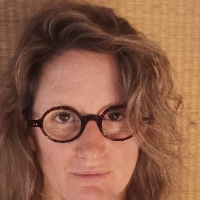ISCC 2025

Nantes University, France
Abstract:
Photocatalytic
oxidation (PCO) is a cheap and energy efficient solution for air treatment
based on chemical reactions on semiconductor (mostly TiO2)
catalyst surface under UV irradiation. It has been studied for several decades
and can be used to remove gaseous contaminants, mainly volatile organic
compounds (VOCs). It has the advantage of being a flexible solution for the
degradation of a wide spectrum of gaseous pollutants in different environments
such as schools, houses, hospitals. The performance of PCO systems depends on
several parameters that can be categorized into two types: process parameters
(e.g. air velocity, light intensity, catalyst media geometry) and environmental
parameters (e.g. initial concentration, relative humidity, and presence of
co-pollutants). The goal of the studies carried out in our laboratory is to
define optimized process parameters to achieve the highest possible degradation
rates of initial pollutants, alone or in mixture, while avoiding the formation
of byproducts that could be more harmful to human health than initial
compounds. Experimental works, performed in a specifically designed stainless
steel close loop reactor and sometimes coupled with numerical simulations, have
enabled to study the degradation of mixtures of VOCs (acetaldehyde, toluene, methylethylketone,
decane, trichloroethylene, acrylonitrile, isoflurane, etc.) in operating
conditions close to real ones (ppb range concentrations, high flow rates). The
obtained data have been explored in order to figure out degradation pathways,
to better understand interactions between the pollutants as well as the
influence of process parameters and to propose solutions to improve PCO system
efficiency for standalone or HVAC implanted devices.
Biography:
Cecile Raillard has completed her PhD at the age of 27 years from Nantes University. She is assistant-professor in the GEPEA laboratory (UMR CNRS 6144). She has published more than 20 papers in reputed journals.
